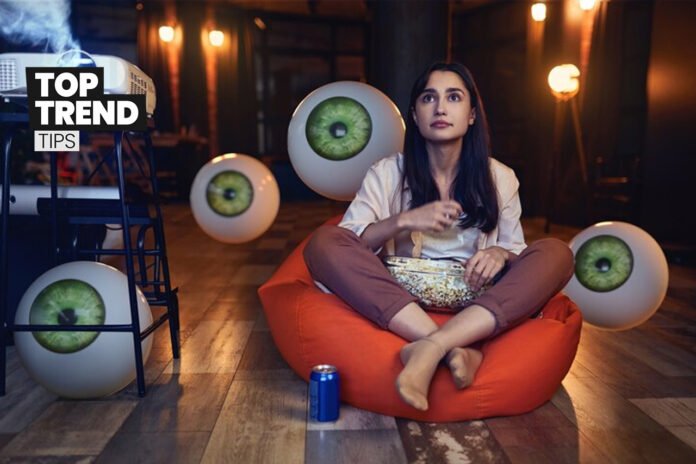How Entertainment Shapes Our Lives: The Surprising Impact on Mental Health
Entertainment is a pervasive force in our lives, influencing how we spend our time, how we perceive the world, and even how we feel about ourselves. From movies and TV shows to music and video games, the content we consume has profound effects on our mental health, both positive and negative. Understanding these impacts can help us make more mindful choices about our entertainment and harness its potential to enhance our well-being.
**1. The Escapism Effect: Finding Relief from Stress
One of the most significant ways entertainment impacts mental health is through escapism. Engaging with films, TV shows, or video games can provide a temporary escape from daily stresses and anxieties. For many, immersing themselves in a different world offers a much-needed break from reality. This kind of escape can be beneficial, allowing individuals to decompress and recharge.
Example: Watching a favorite TV series or playing a video game can serve as a healthy distraction, helping individuals manage stress and avoid ruminating on their problems. For instance, shows with uplifting narratives or games with calming environments can provide relaxation and reduce stress levels.
**2. Emotional Catharsis: Processing Feelings Through Entertainment
Entertainment often allows for emotional release or catharsis. Movies, music, and literature can evoke strong emotions and help individuals process their feelings. This emotional engagement can be therapeutic, providing a safe space to confront and work through complex emotions.
Example: Listening to a poignant song or watching a dramatic film can resonate deeply with someone going through similar experiences, offering a sense of validation and understanding. For example, films like A Beautiful Mind or Silver Linings Playbook tackle mental health issues and can help viewers feel less isolated in their struggles.
**3. The Influence of Social Media: Impact on Self-Esteem
Social media platforms, as a form of entertainment, can have both positive and negative effects on mental health. While they offer connectivity and a platform for self-expression, they can also contribute to feelings of inadequacy and low self-esteem. Constant exposure to idealized images and lifestyles can lead to comparison and dissatisfaction.
Example: Platforms like Instagram and TikTok often showcase filtered and curated content, which can distort reality and negatively impact self-image. Research has shown that increased social media use is associated with higher rates of anxiety, depression, and body image issues, particularly among adolescents and young adults.
**4. The Power of Representation: Influencing Self-Perception
Entertainment media plays a crucial role in shaping self-perception and societal norms. Positive representation in films, TV shows, and books can validate diverse experiences and identities, fostering a sense of belonging and self-worth. Conversely, negative or stereotypical portrayals can perpetuate harmful biases and contribute to mental health struggles.
Example: Shows like Pose and Schitt’s Creek have been praised for their positive and nuanced representation of LGBTQ+ characters. Such representation can improve mental health outcomes by fostering acceptance and providing role models for marginalized communities.
**5. The Role of Humor: Enhancing Well-Being
Humor is a powerful tool in entertainment that can significantly enhance mental health. Laughter and comedy can reduce stress, improve mood, and even strengthen social bonds. Engaging with humorous content provides a mental break and helps lighten the emotional load of everyday life.
Example: Comedies like The Office or Parks and Recreation not only entertain but also offer a therapeutic form of escapism. Regular laughter and positive interactions with comedic content can contribute to overall well-being and resilience.
**6. The Risks of Overconsumption: The Impact of Binge-Watching
While entertainment can be a source of joy and relaxation, overconsumption—such as binge-watching TV shows or playing video games for extended periods—can have adverse effects on mental health. Excessive screen time can lead to sleep disturbances, social isolation, and decreased physical activity.
Example: Studies have shown that excessive binge-watching can lead to sleep problems and reduced cognitive function. Maintaining a balanced approach to entertainment consumption is crucial for mental and physical health.
**7. The Role of Interactive Media: Cognitive and Emotional Engagement
Interactive forms of entertainment, such as video games and virtual reality (VR), engage users in unique ways that can influence mental health. While gaming can offer cognitive benefits, such as improved problem-solving skills and stress relief, it can also lead to negative outcomes if not managed properly.
Example: Games like Animal Crossing and Stardew Valley provide relaxing, non-competitive experiences that can be soothing and offer a sense of accomplishment. However, competitive or high-stress games can lead to frustration and anxiety if they become overly consuming.
**8. The Influence of Nostalgia: Emotional Comfort
Nostalgic entertainment, such as re-watching favorite childhood movies or TV shows, can provide comfort and emotional solace. Revisiting familiar and cherished content can evoke positive memories and offer a sense of continuity and stability.
Example: Re-watching classic TV shows like Friends or The Fresh Prince of Bel-Air can provide a comforting escape and a reminder of simpler times. This emotional connection to past media can be a source of comfort during challenging periods.
**9. The Impact of Music: Regulating Mood
Music is a particularly potent form of entertainment that has a direct impact on mood and mental health. Different genres and types of music can evoke various emotional responses, from relaxation and joy to sadness and nostalgia.
Example: Listening to calming music can reduce anxiety and promote relaxation, while upbeat music can improve mood and energy levels. Creating personalized playlists for different emotional needs can be a practical tool for managing mental health.
**10. The Social Connection: Building Relationships Through Shared Interests
Entertainment often serves as a social glue, bringing people together through shared interests and experiences. Participating in fan communities, attending live events, or discussing favorite shows and movies can strengthen social bonds and provide emotional support.
Example: Joining fan clubs or online communities related to favorite shows or movies can foster a sense of belonging and support. Engaging in shared activities, such as watching a series together, can enhance social connections and provide emotional fulfillment.



